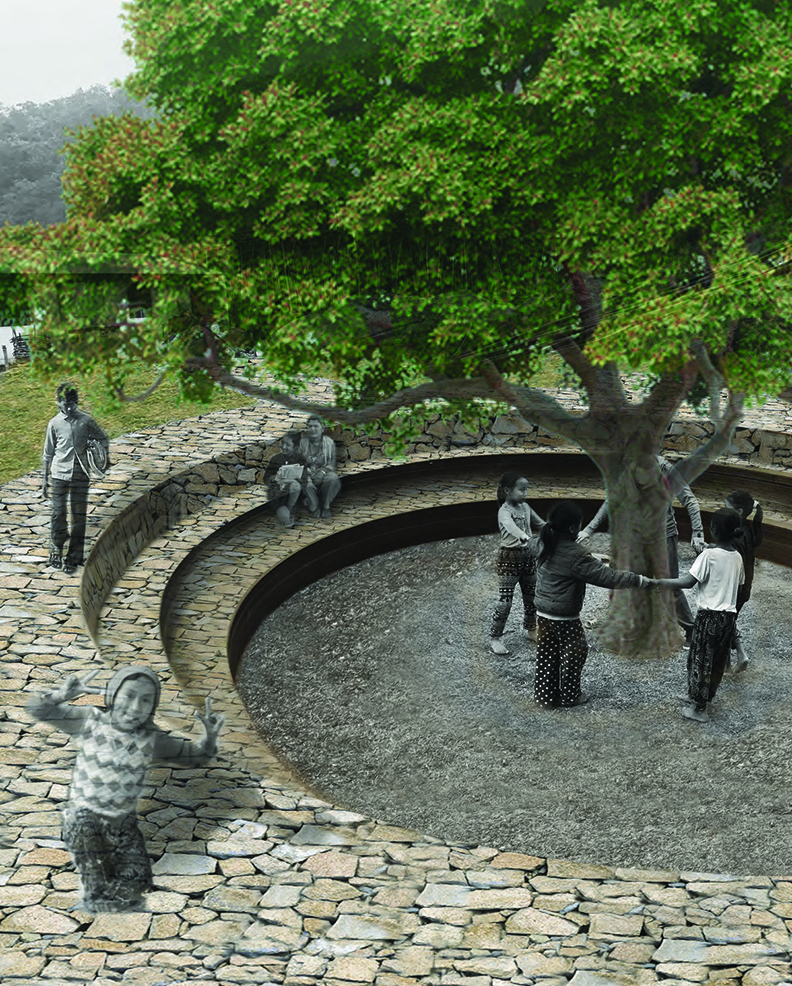Children in the villages spend 30 hours per week in school. The school grounds offer hope, and it may be the last opportunity to reconnect children with nature and create a future generation that preserves and values the natural world.
Books about educational systems, design guides for the school playgrounds and papers on learning through landscapes show that regular interaction with nearby nature during childhood develops the formation of bonding and positive attitudes towards the natural environment, believing that if children don’t develop a sense of respect and caring for the natural environment while young, they run the risk of never developing such attitudes later on in life.1
The traditional school system does not include outdoor learning as part of the curriculum. The outdoor space, more commonly referred as a playground, is a hidden but important part of the curriculum, described as an informal curriculum2, but only used during break time. As the playing, creating, and learning in the outdoors are so important for the depevelopment of the individual, it should be included as part of the formal curriculum. At least one day of the week, young students of primary and secondary schools should be outside of the classroom.
Our education system, needs to be adapted to our time, no matter where and in what climate. We need to rethink the amount of time dedicated to classes in the indoor environment and open up the door for exploration, discoveries, and the power of the children’s imagination through the natural environment; a space that is the center of communities perhaps, where change take place.
Chautara: the transformation of the school grounds project is the approach that I contribute to the process of transforming the schools grounds in the center of the community, changing the way education is viewed today through a more holistic lens and sustainable strategies. I aim to create the blueprint for a pilot project in Thadi Khola, that can also be implemented in other schools grounds.

